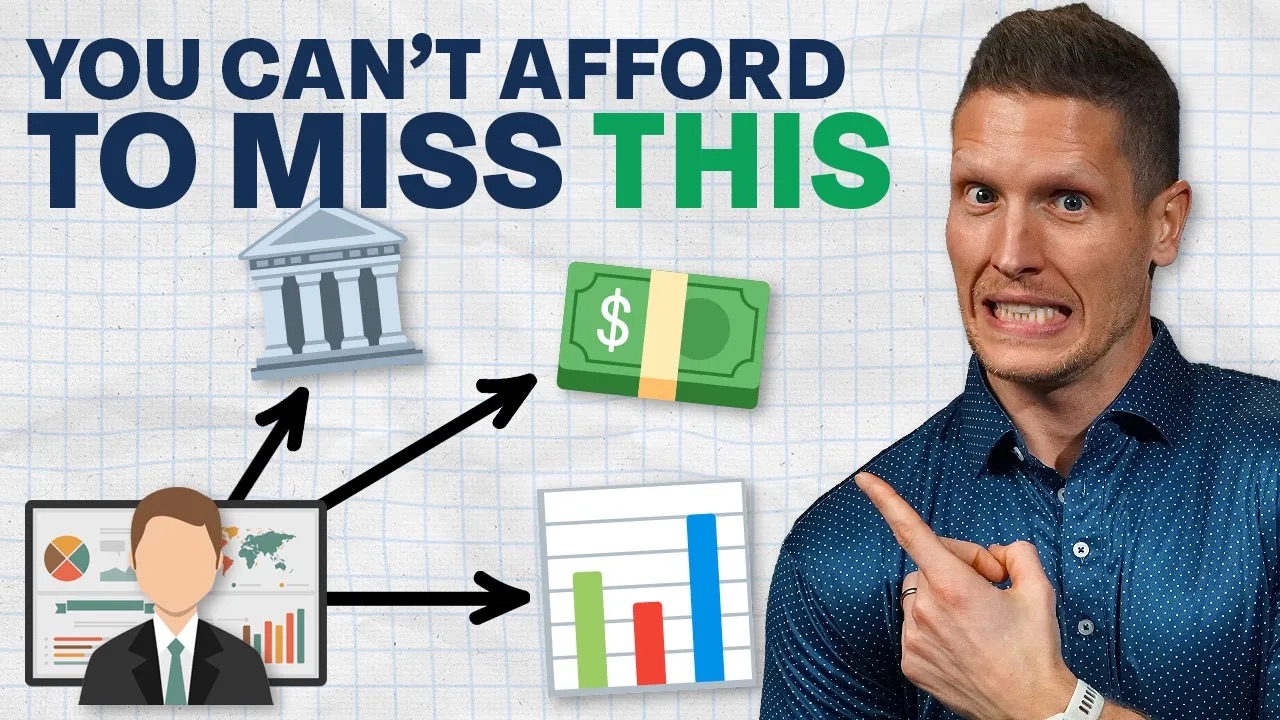This next one is a little bit of a doozy, but I think it's really important to speak to this mindset. I'm nervous about dudes. No, I think you'll get it, you'll get it, but it's from the Money Brick Road. He says, "I'm 32 years old. I want kids in the future, but hearing daycare costs is another mortgage. So that's 25% saved, 25% on house, 25% on daycare, 30% on taxes, and 8% to cars, which equals 113% in his calculation. He then says, 'Please change my thinking. I'm doing the best I can.'"
The Money Brick Road is in the thick of the messy middle. It sounds that way, right? Or worse. So how long should you think about this? Yes, he's about to step in, right?
Yeah, I would love to hear you speak to the people in the messy middle. So, I'm gonna start big picture and we'll see if we can wheel this down a little bit. I am of the opinion that children are not a financial decision. When it comes to having kids and deciding that you want to carry on your legacy and that you want to create lives to come into this world, financially you should prepare for that, you should think through it. But I don't think it's a binary financial decision. Yes, I should, no, I shouldn't, based solely on the financial impact.
Now, I do think it's one of those things that when you think about having a family and saving and taxes and all the different things that pull in all the different directions, it's easy to focus on everything, all the stuff you have to tackle. But in reality, you don't have to tackle all of those things at once. So, let me give you this little exercise: 25% here, 25% here, 25% here, you know, 30% here. What likely happens is you don't do all of those things all at once. Unless you're a super high income, you're probably not paying all 30% in taxes. There's a really good chance that your effective tax rate is sub that number, less than that. Boom, I just found you some percentage points. Maybe when you start out on your journey, you can't quite hit that 25%, but maybe you're able to hit 15% to 20%. Boom, I just found you some percentage points. When you do 23.8% and when you go out to buy a car, that 8% of the car payment is only for 36 months, it's only for three years. So, if you drive a car for seven to ten years, that means that there are a number of years where you have no car payment at all. Boom, that 8% comes back.
Just because there are all these costs that can happen does not mean that they all happen at the same time and they all have to stay static through time. Remember, building financial independence is a journey, it's a path that you walk on, it's not a treadmill. The terrain changes, you have to adapt as you move through that. So, don't let yourself be overwhelmed with all the problems that you could have. Focus on the steps immediately in front of you and start marching forward, taking those first few steps.
One more boom, and I was gonna think we were playing Madden. I came really close to getting some flashbacks there, but okay, look, let me, um, I think it's kind of interesting. We're asking this on a day, y'all don't know because you can't see who's in the room, but my oldest daughter is actually here today. Yeah, there she is in the live studio audience. We don't really have a studio audience, we just have a lot of, we've got a bunch. There's a lot of people working behind the scenes, but it is one of those things where I look at and I gotta tell you, um, I mean there's so many things. Like, there was even a story, I'm not gonna say it because it would embarrass my wife, but we were talking last night and there was something that my wife, you know, we were, we were talking. She can't do it anymore because of the sacrifices of having children. My daughter, I'm trying not to give too much detail, but she was like, "Um, I'm never having kids based upon some of the things you share." Wow, and I'm like, "Look, I, I gotta tell you, there is no greater thing." Um, it's really cool to see your children reach adulthood, start having some success, do things. And look, I also have a child that has some special situation, so she was probably not gonna have the same level of success as the oldest daughter, but still, I love her just the same. And I think you said something very key there, is that you know, kids are not necessarily all financial. You said it wasn't a financial decision. I know that as a financial mutant, I waited a long time to have kids because I was trying to figure it all out and I was trying to control everything. Because that's probably what makes me a great financial planner, is because I do try to control. But it's also sometimes there's, you gotta understand that you're in a moment of time and that window. Um, you know, I would, here's what I'm trying to say. If I do it all over again, I'd probably start a little sooner. Sure. Because I was trying to control everything and I love seeing the joys of having an older daughter now that I would have probably had children sooner. Also knowing the, you know, a lot of problems with having a child with a special condition, is that we waited so long too. I mean, I know that that medically came into play, but, um, I think that people need to realize a lot of times, that's financial mutants. We're guilty just like all other humans are, as we think linear, we're thinking in this moment in time. And I think if I could have told my 25-year-old self or 26-year-old self, is, Brian, if you could see where you're going in the long term, this, this you're worrying about stuff that's going to seem so small down the road. Whereas children is such a big decision, think about that in more of a long-term mindset versus just this moment of time. Because I was stuck thinking about the guy who was making fifty, sixty thousand dollars a year, not knowing the multiple that was going to come on that exponentially in the future. And that doesn't mean everybody's gonna have those huge exponential growth things, but I do think that in the messy middle, we get caught in that slog, that we don't realize that it's going to get better. And then you get the legacy of a family if you have a spouse that you love and you'll have the healthy thing that you can bring all that around. So, I would not say don't think about the finance, but I'm just saying be responsible. Think long term, think about, you know, what you're trying to build, what's your why. For more information, check out our
free resources.













